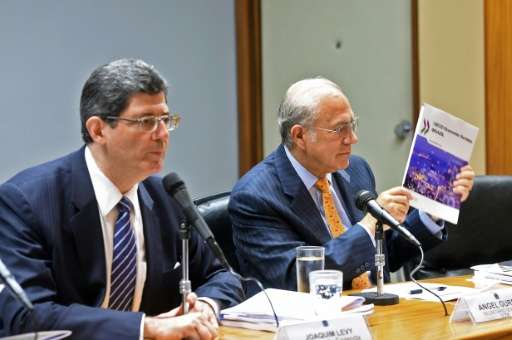In its first environmental survey of the country, the Organization for Economic Cooperation and Development warned that Brazil must take further action to clean up the environment
Brazil is destroying an area of rainforest the size of Israel every four years despite major conservation progress, the OECD economic grouping said Wednesday.
Biologically diverse Brazil will be a key player among the 195 countries at the UN climate conference in Paris in December, which will look to reach a global agreement on limiting climate change.
In its first environmental survey of the country, the Organization for Economic Cooperation and Development warned that Brazil must take further action to clean up the environment even as its worsening economy is complicating those efforts.
The OECD report hailed "strong progress made in reducing deforestation and emissions of greenhouse gases over the past 15 years" in the Latin American powerhouse.
But it warned that the giant emerging economy, which is set to host the Olympic Games next year, was still the biggest destroyer of forests in the world—some 480,000 hectares (1.2 million acres) in 2014 alone. That was down from around 2.7 million hectares in 2004 however.
"Brazil has made tremendous progress in terms of its environmental performance, but rigorous policy implementation remains critically important," OECD Secretary-General Angel Gurria said in the organization's Environmental Performance Review of Brazil.
"Greening the economy can also bring huge social and economic opportunities, with green markets offering potential to boost GDP by up to seven percent."
Brazilian Finance Minister Joaquim Levy (L) and the Secretary-General of the Organization for Economic Co-operation and Development (OECD) Angel Gurria present the OECD Economic Survey of Brazil in Brasilia, on November 4, 2015
The OECD warned in a separate report on Wednesday that Brazil's economy was in "a critical moment."
It forecast the country's economic output would shrink by 3.1 percent next year. That is a greater contraction than the latest forecast from the government, of 2.8 percent, or from the International Monetary Fund, of 3.0 percent.
© 2015 AFP























